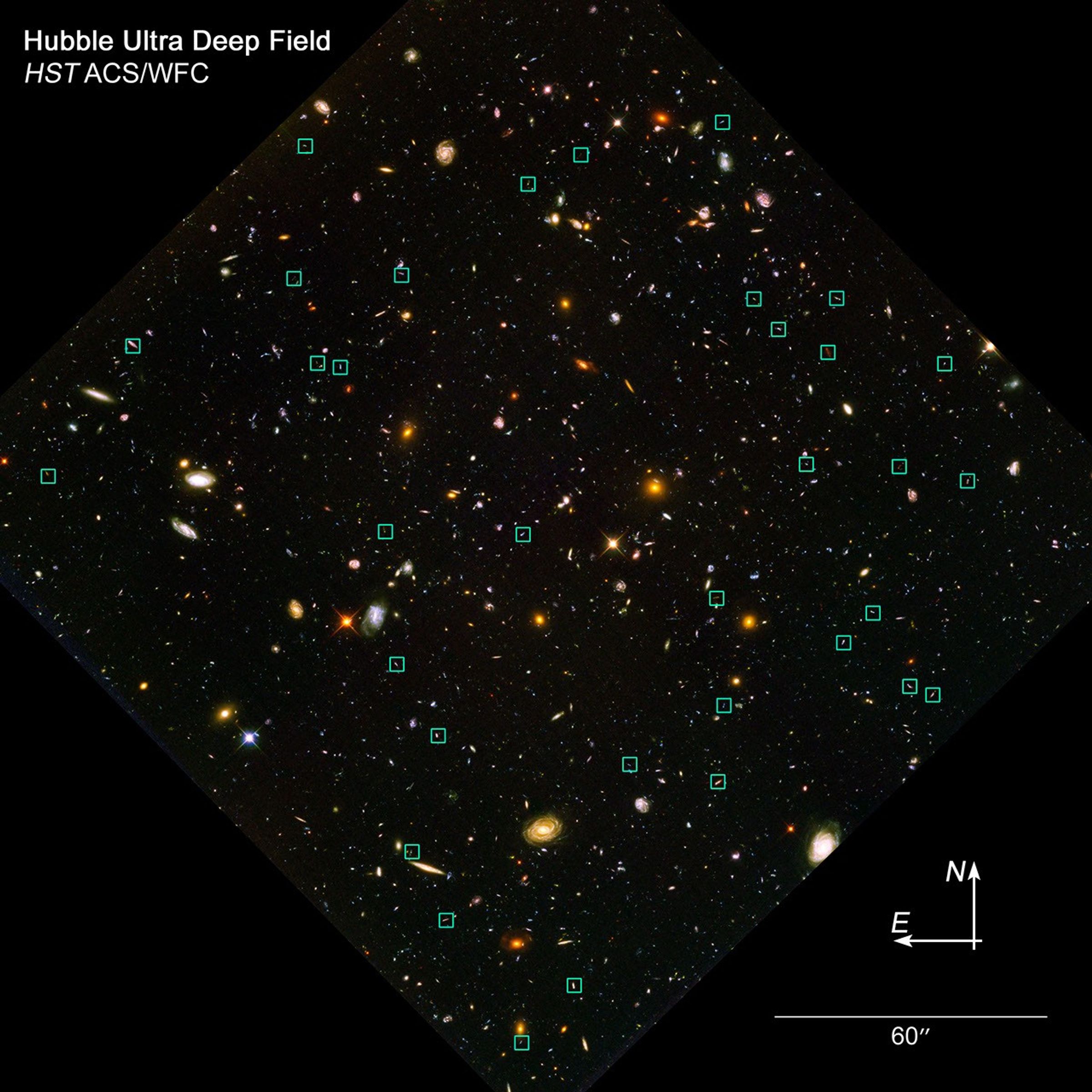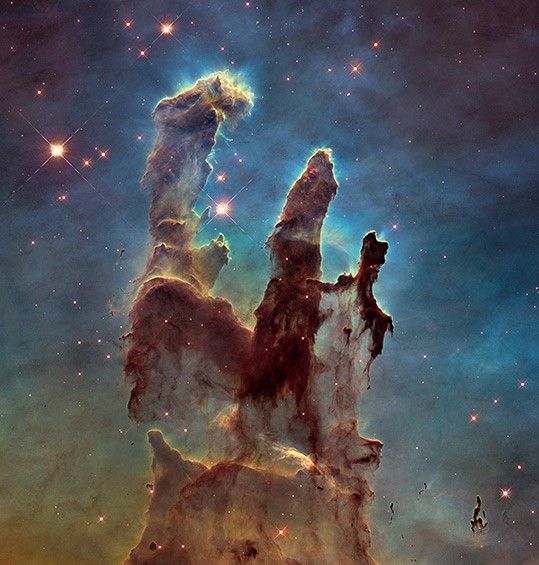1 min read
Locate the ‘Tadpole’ Galaxies

Among the thousands of galaxies in this image of the Hubble Ultra Deep Field are the 36 so-called "tadpole" galaxies identified recently by astronomers. The green squares mark these galaxies, which existed billions of years ago. They are called tadpoles because of their distinct knot-and-tail shapes, which suggest that they are engaging in galactic mergers.
About the Object
- R.A. PositionR.A. PositionRight ascension – analogous to longitude – is one component of an object's position.03h 31m 59.99s
- Dec. PositionDec. PositionDeclination – analogous to latitude – is one component of an object's position.-27° 48' 0.0"
- ConstellationConstellationOne of 88 recognized regions of the celestial sphere in which the object appears.Fornax
- DimensionsDimensionsThe physical size of the object or the apparent angle it subtends on the sky.3 arcminutes square
About the Data
- Data DescriptionData DescriptionProposal: A description of the observations, their scientific justification, and the links to the data available in the science archive.
Science Team: The astronomers who planned the observations and analyzed the data. "PI" refers to the Principal Investigator.This image of the HUDF was created from HST data from the following proposal: 9978: S. Beckwith, S. Malhotra, M. Giavalisco, N. Panagia, J. Rhoads, M. Stiavelli, R. Somerville, S. Casertano, B. Margon, C. Blades, J. Caldwell, and M. Clampin (STScI), M. Corbin (CSC), M. Dickinson, H. Ferguson, and A. Fruchter (STScI), R. Hook (STScI/ECF), S. Jogee, A. Koekemoer, R. Lucas, M. Sosey, and L. Bergeron (STScI). The science team includes: A.N. Straughn, S.H. Cohen, R.E. Ryan Jr, N.P. Hathi, R.A. Windhorst, & R.A. Jansen (Arizona State University), A.M. Koekemoer, N. Pirzkal, C. Xu, B. Mobasher, S. Malhotra, L.-G.Strolger, and J.E. Rhoads (STScI). - InstrumentInstrumentThe science instrument used to produce the data.HST>ACS/WFC
- Exposure DatesExposure DatesThe date(s) that the telescope made its observations and the total exposure time.September 24, 2003 - January 16, 2004, Exposure Time: 11.3 days
- FiltersFiltersThe camera filters that were used in the science observations.F435W (B), F606W (V), F775W (i), F850LP (z)
- Object NameObject NameA name or catalog number that astronomers use to identify an astronomical object.Hubble Ultra Deep Field, HUDF
- Object DescriptionObject DescriptionThe type of astronomical object.Optical Survey, Deep field survey
- Release DateJanuary 10, 2006
- Science ReleaseMonster Black Holes Grow After Galactic Mergers
- Credit

Color Info
Color InfoA brief description of the methods used to convert telescope data into the color image being presented.
Blue: F435W (B) Green: F606W (V), F775W (i) Red: F850LP (z)

Compass and Scale
Compass and ScaleAn astronomical image with a scale that shows how large an object is on the sky, a compass that shows how the object is oriented on the sky, and the filters with which the image was made.
Related Images & Videos

A Gallery of 'Tadpole Galaxies'
These postage-stamp-size images reveal 36 young galaxies caught in the act of merging with other galaxies. These galaxies appear as they existed many billions of years ago. Astronomers have dubbed them "tadpole galaxies" because of their distinct knot-and-tail shapes, which...
Share
Details
Last Updated
Aug 17, 2025
Contact
Media
Claire Andreoli
NASA’s Goddard Space Flight Center
Greenbelt, Maryland
claire.andreoli@nasa.gov




























